The 22-month long PGDM (RM) programme is divided into six Classroom Terms, a Village Fieldwork Segment (VFS), and a Summer Internship Segment (SIS). The courses in each of these six terms are carefully structured in order to give a wholesome view of the entire discipline and are judiciously placed to enable the participants to apply the same during their internship.
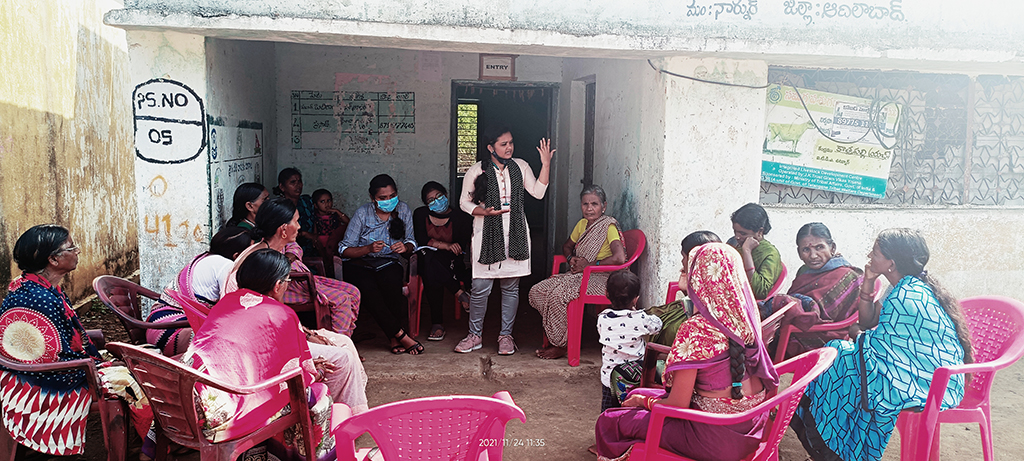
Phase 1 | The Fundamentals and Field: 1st Term & Village Fieldwork Segment
The courses in the first term cover some of the fundamentals of the management discipline and subjects that aid and provide tools for understanding and practical application in the Village Fieldwork Segment. The core courses during the first term include Business Statistics and Analytics, Microeconomics, Organizational Behavior, Financial Accounting and Rural Society and Polity. Implementation-oriented courses such as Participatory Rural Appraisal and value-added courses such as Gender and Development Lab equip the students to undergo the Village Fieldwork Segment wherein, they will be gaining first-hand experience to understand rural life and society by spending seven weeks in the village.
The VFS consists of three distinct components: Exploratory Study of the Village (ESV), Rural Action Component (RAC) and Theme Paper (TP). ESV is designed to give students a deeper understanding of crucial rural development themes such as health, education, governance, land tenure, agriculture, livestock, employment and business structures, and financial inclusion. Under the RAC component, participants execute a small action-oriented task assigned by the host organization. For the Theme Paper, the students must study and highlight any village specific issue and give their recommendations for the same.
Phase 2 | The Functionalities of Fundamentals: 2nd & 3rdTerm & Summer Internship Segment
The courses in the second comprise the different functional areas of management and help the students develop an advanced understanding of the management discipline and development field through the integrative core subjects. The core subjects in these two terms include Macroeconomic Perspectives, Organizational Structure & Design, Operations Research & Management, Human Resource Management, Financial Management, Marketing Management and Market Research & Analytics. Spreadsheet Modelling, a value-added course, provides students with an experiential learning opportunity. The Development Theories course in the second academic term aids in the students’ understanding of the development field.
The Summer Internship Segment (SIS) is a nine-week long internship program scheduled from June through August of the PGDM-RM program. It aims to provide students with an opportunity to work closely with experienced managers in corporate and grassroots organizations. Students develop practical skills and gain a realistic idea of the managerial functions of various organizations. It offers scope for application and appreciation of theories, tools and techniques learned in the classroom and the VFS. Hence, SIS acts as a prelude to what the students are likely to encounter in their careers as managers.
Phase 3 | Reflection and Execution: 4th, 5th & 6th Term
In the last three terms, elective courses build on the foundational subjects and help students develop expertise in specific practice areas. This allows students to reflect on their learning from previous terms and build higher-order management skills. This is established through courses like Strategic Management, Project Management, and Managing Collectives. Students are given the freedom to judiciously choose electives that would shape their IRMA journey during these terms.
Furthermore, there are electives aimed at providing an in-depth understanding of various paradigms of management and development processes such as Corporate Social Responsibility, Monitoring & Evaluation and Microfinance as well as those that build a critical perspective on business domains such as Sales and Distribution Management, Agribusiness, Quality Management, Supply Chain Management, Social Marketing, Brand Management, and Strategic Sourcing Management.
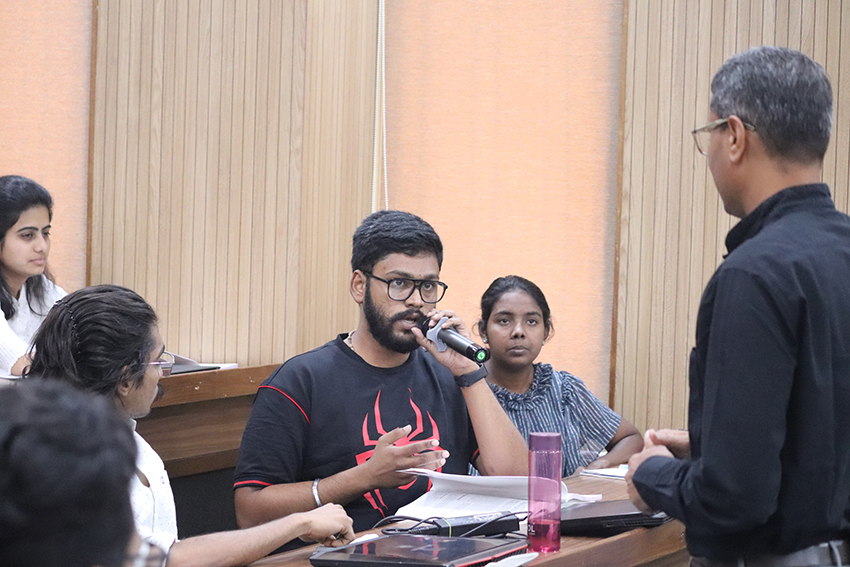
In order to achieve this perfect learning mix, IRMA, through its illustrious faculty, follows a distinct pedagogy with regard to each course that includes:
– Projects and Presentations: This gives participants an opportunity to showcase their knowledge, creativity, and dynamism. Working in different groups with their peers from diverse academic backgrounds widens the knowledge base of participants, introducing variety to their unique learning experience besides honing their leadership a-nd people management skills.
– Simulation / Experiential Exercises and Audio-Visual Aids: Every new batch is inducted into the PGDM(RM) programme through the famed in-house management simulation game called ‘Naranpur Express’ that simulates the rural economy and emphasizes the need for asset management and financial prudence. Simulation games are also employed in a lot of ‘Organizational Behaviour’ domain courses to demonstrate practical situations and the strategies required to be used in them.
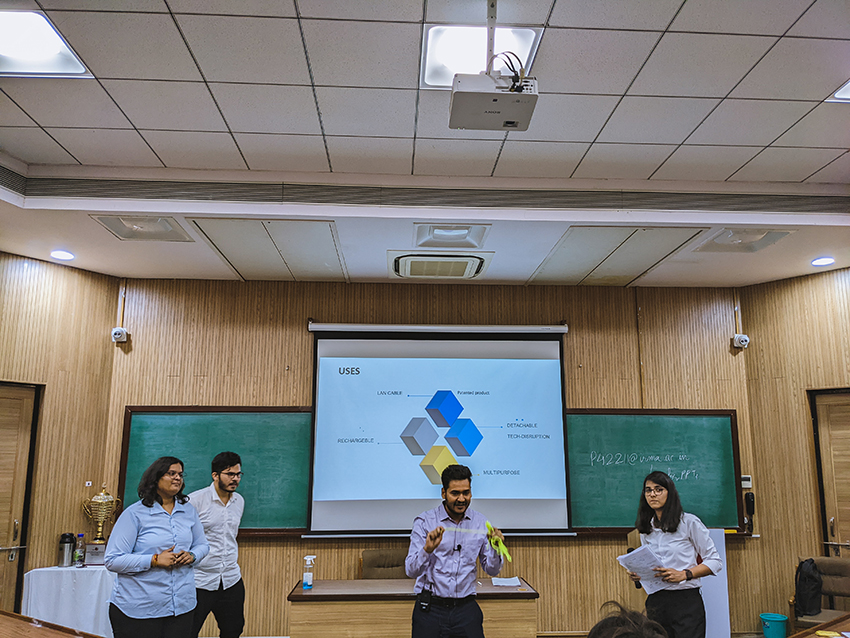
– Case Analyses: Used for introducing contextual analyses and insights into issues discussed in classes by simulating a business environment in the classroom.
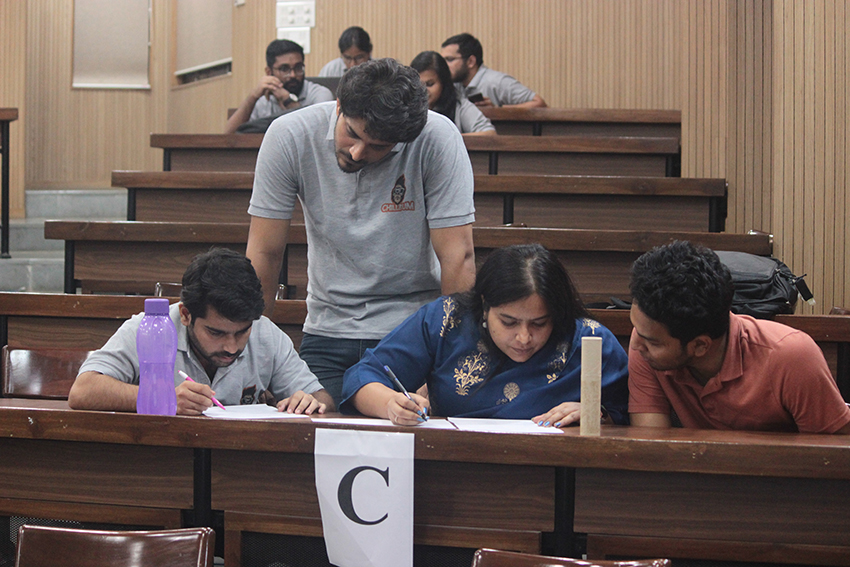
– Experiential Learning: Participants spend considerable time outside of the campus, learning, and applying. A graduating participant will have lived and worked with the underserved for nearly five months and hence, becomes a valuable asset to any organization wanting to cater to the needs of the rural populace.
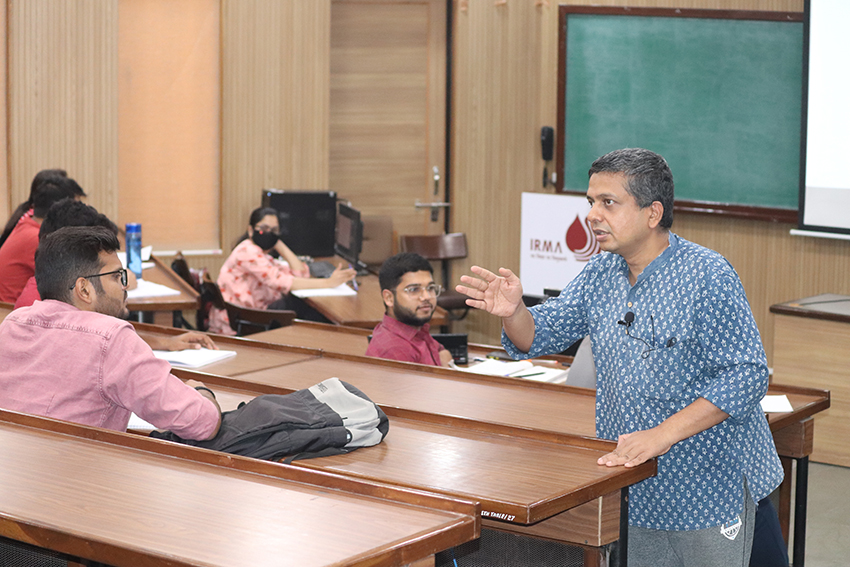
– Firm Belief in Gender Inclusivity: Here at IRMA, the genders are treated on par. Female participants face the same challenges as their male counterparts while on their fieldwork in the hinterlands. The tenacity of assignments remains the same and neither of the genders is discriminated against in the context of opportunities.